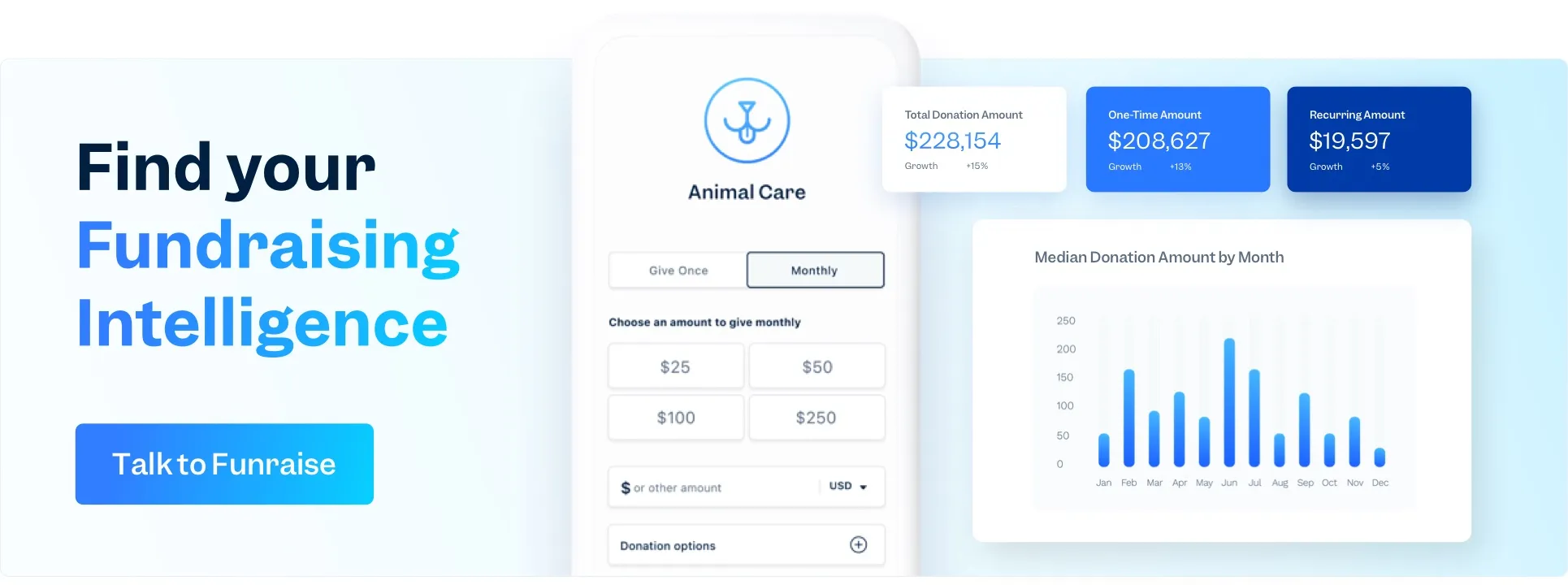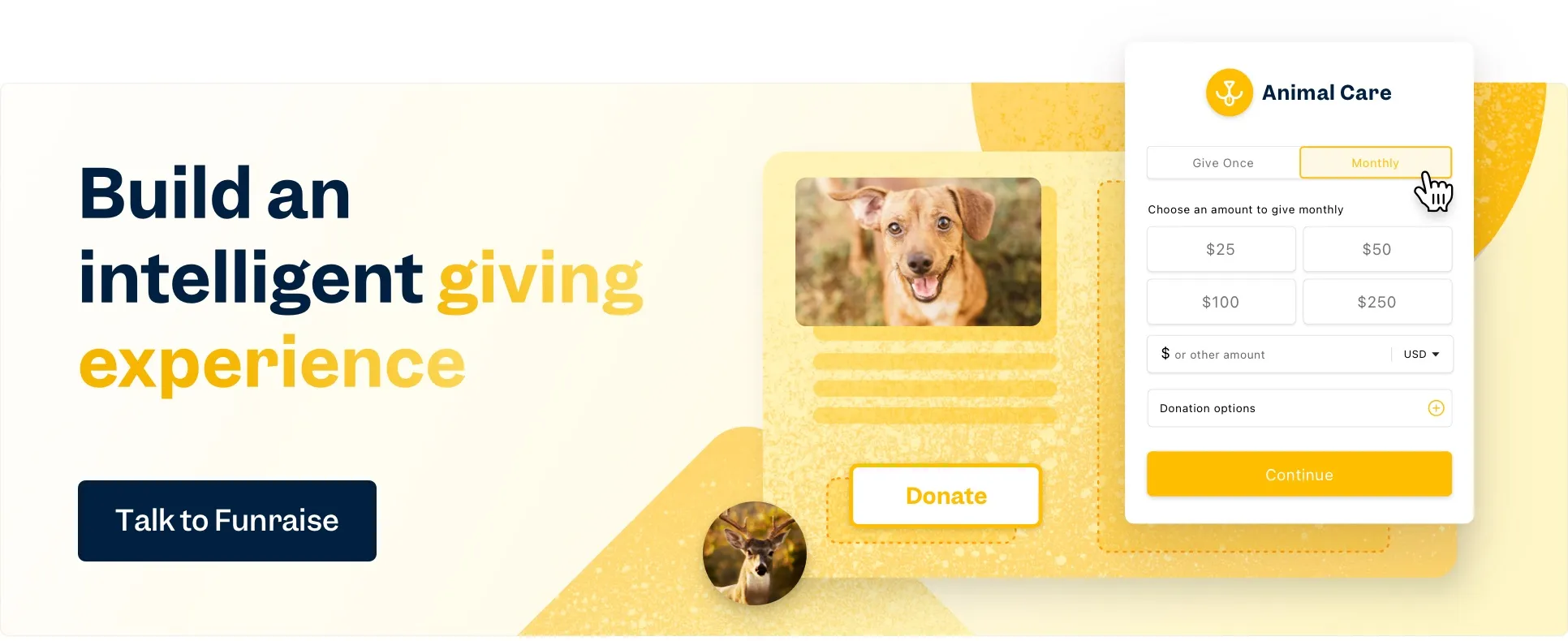The 7 Habits of Highly Effective Nonprofit Executive Directors
We know you’re a busy person. After all, you’re the Executive Director of an awesome nonprofit. You show up to do this work every single day. But being the leader of a nonprofit isn’t without its challenges. The keys are consistency and caring for yourself as well as your nonprofit.
If any of this sounds familiar, you're probably wondering if there's anything you can do to make it easier to manage everything that’s on your plate? You bet your funding dollar there is! There are tons of productivity and self-management tools that can help you.
Today, we're putting an ED-centered spin on one of the most popular business books out there, "The 7 Habits of Highly Effective People," by Stephen Covey. Read on, nonprofit friend, and discover some useful advice geared towards busy EDs just like you.
What are the 7 habits?
"The 7 Habits of Highly Effective People" is a classic business and self-help book that's sold over 25 million copies around the world. People have sworn by this framework, sold their souls for this framework, given up their firstborns for this framework! Okay, maybe not all of those things, but it's been pretty impactful.
What are the 7 habits? Glad you asked.
- Be proactive—This habit is all about moving out of reactive mode and taking responsibility for what’s happening around you. By being proactive you can take steps to improve the situation and yourself.
- Begin with the end in mind—It’s important to visualize your future and know where you’re going. For any goal or aspiration that you have in mind, Covey suggests taking the time to really understand the endpoint so that you can act more effectively.
- Put first things first—We all know prioritizing can make a difference and Covey suggests that when it comes to prioritizing what needs to get done, we tackle what is urgent and important.
- Think win/win—This habit is about fostering better relationships and interdependence. Rather than just figuring out how an outcome or project will work for you, take the time to make it a win/win for everyone involved.
- Seek first to understand, then to be understood—Empathy is an important quality in a leader. Covey suggests that we all cultivate our ability to empathize with others by seeking to truly understand them. The more time we take to build these kinds of connections, the more influential we can be.
- Synergize—We all know how important it is to have a great team, but the secret to having the best team is to synergize. This means finding ways to leverage every person’s strengths and building a positive team culture.
- Sharpen the saw—To be our best, most effective selves, we need to be constantly improving or “sharpening the saw.” This means doing activities that emphasize our physical, spiritual, and mental renewal.
That’s our super abbreviated guide to the seven habits. If these sound like ideas you can get behind, it’s worth picking up Covey’s book to do a deeper dive into each habit. Here are those 7 habits modified for nonprofit EDs.
1. Plan for success
You may not be a fan of having a day planner, but we can say that the most effective EDs make planning a priority. This starts at the macro level with your strategic plan and goes all the way to the micro-level with daily planning. Since you are the captain of the ship, it’s important you know where you’re steering the crew! By making plans you’ll be able to do just that.
Here are a few planning frameworks we recommend:
- Strategic Planning—a must-do in our book for all nonprofits
- Quarterly Planning—sometimes it’s difficult to operationalize your strategic plan for a full 12 months. That’s where quarterly plans come in. They help you plan for a tangible, realistic time period. Check out the book "The 12 Week Year,"for quarterly planning inspo.
- Weekly Planning—we all know that work weeks can be a little chaotic. To control the chaos, it’s helpful to go into your week with a plan. We like setting our top 3 goals for the week and time blocking for key tasks.
2. Protect your time
We know there are a million demands on your time. Between staff meetings, board meetings, and donor meetings, you could easily spend most of your week in a never-ending loop of meetings. But you also need time for visionary and strategic work—AKA time that is not spent in meetings. This means setting boundaries and saying no. We suggest you put a few blocks of time in your calendar that are meeting free. This helps you protect your time and ensure you have time to do important strategy work.
As a bonus, awesome organization culture starts from the top down. You want your staff to stay happy and healthy at work so that they enjoy their jobs and can do their best work. Leading by example and making self-care a priority is one way that you can improve your organization’s culture. Here are a few small ways you can do this:
- Let your staff know that you won’t respond to emails outside of working hours and that they don’t have to either
- Actually take your lunch break—if you must stay at your desk, do something obviously non-work-related
- Leave work at a consistent time
3. Delegate
Maybe you work at a small nonprofit where you are a staff of 1. Maybe you're overseeing a staff of 20+ people. No matter what your HR situation looks like, delegation is an important habit for EDs to adopt. Letting go of the reigns can be super difficult, but you can’t do everything yourself (well, maybe you can, but you shouldn't have to). Sometimes you need help and need to let go so others can do what they do best.
At the end of each week, spend a few minutes reviewing all the tasks you did during that week. Go through each one noting whether or not you're the only qualified person at your organization to do that task. If other people could theoretically do the task, ask yourself if you can delegate that task next week.
Are you a team of one? See if there are any tasks that your board or other volunteers could help with to lighten your load.
4. Reconnect with your why
Burnout is something we’re all at risk for and that’s why we think this habit is so important for EDs. It’s all too easy to just be nose to the grindstone. Find time each week to reconnect with your why and your passion. Remind yourself of why you support your organization’s mission and vision, why you’re proud to lead it, and what you love most about your work.
At the same time, use your expertise to step into your role as a thought leader and inspire others. As the leader of your nonprofit, you undoubtedly have interesting things to say, and by becoming a publicly recognized figure associated with your cause, you can boost your nonprofit’s profile in the community. Building your thought leadership portfolio doesn’t have to be a huge project either. You might start small by committing to write three OpEds this year or applying to speak at a few conferences. You could also maintain your social media feeds as a way to build up your thought leadership.
5. Improve your hiring practices
It’s the future already and that means it’s time for out-of-date hiring practices to be tossed out. As Executive Director, you have the power to raise the bar on your hiring processes by improving their equity and diversity, so use that power for good! Vu Le suggests these three major changes to nonprofit hiring practices:
- Disclose salary range and never ask for salary history or salary requirement.
- Don't ask for formal education except for specialized positions (legal, accounting, counseling, etc).
- Don't exclude candidates with disabilities by requirements like: "must have working vehicle" or "must be able to lift 50 pounds," unless those are essential duties. (And really, there are very few times those are actually essential, so put a rullll harsh light on that 'requirement'.)
- Don't exclude candidates with criminal records unless those records are relevant to the current job.
6. Cultivate those relationships
It’s no secret that staff retention in the nonprofit sector could be better. If you want to keep your best staff around for years, one of the things you can do is spend time cultivating and developing your team. Support their professional development by helping them find opportunities to grow their knowledge and skills.
One of the best habits any leader can cultivate is listening to those around them. If you want to be an inclusive, collaborative leader, this is a must. It's so easy to charge full steam ahead, but there are immense benefits to listening. Next time you’re in a team meeting, pay attention to how much time you spend talking versus how much time you spend actively listening. In one-on-one meetings with staff, be mindful of how you're listening.
And one more thing: We know working with your board isn’t always the easiest part of your job, but having a solid working relationship with your board chair can improve the situation. Ideally, EDs and board chairs should be working together closely by having regular check-ins, setting meeting agendas, reviewing the strategic plan, and more. If this isn’t the kind of relationship you have with your board chair right now, hit the reset button. Start by taking your board chair out to lunch or coffee to talk about the upcoming year, set goals for the board, and discuss how you can best work together.
7. Grow your skills
While we’re on the subject of cultivating employees, we want to make sure you’re in the habit of growing your own skills. Between webinars, books, conferences, coaching, and more, there are endless opportunities at different price points to help you grow your leadership skills. Make it a habit of building an annual professional development plan for yourself and follow through on it. Here are a few ideas of professional development goals you could set for yourself:
- Learn techniques for coaching staff
- Improve working relationships with board members
- Learn how to write OpEds
- Improve public speaking skills
There are so many personal and professional habits that can help you in your role as an ED. We hope this list of 7 habits of highly effective EDs provides you with some inspiration for your work and makes it a little more manageable. Keep leading awesome, ED! The world needs you and your organization.
How Nonprofit EDs Can Own Their Leadership Role and Let Go of Imposter Syndrome
As a highly effective Executive Director, you’re now poised for nonprofit greatness. But just when you think you’re in the clear, something happens. Relax: doubting yourself is normal; and overcoming imposter syndrome is achievable. Remember that it's no mistake or accident that you're where you are right now.
Don't worry, ED. You're only human and we've all been there. Leadership of any kind is hard work, and leading a nonprofit is no exception. But beware of falling into old thought habits that undermine your confidence and ownership of your role. That'll only hold you back from showing up as the best darn ED you can be.
These types of habits and thought patterns are hard to break, and that's why we want to help you out, ED. We’ve rounded up some of our favorite advice to help you let go of imposter syndrome and self-sabotage for good. And don't worry—this is a woo-woo free zone. So, we'll steer clear of suggesting you begin each day with an awkward mirror affirmation or start referring to yourself in third-person to express your feelings (not that there's anything wrong with those things!).
Own your strengths
The term imposter syndrome was coined back in the 1970s and is used today to describe the internalized feeling that you are a fraud in the workplace and that all of your accomplishments are insignificant and unworthy of praise. Pretty harsh if you ask us! If this sounds like something you’ve bumped up against, it’s time to let go of those false narratives and own your accomplishments and strengths.
If you're a humble leader, referring to your personal accomplishments with a ‘we’ pronoun instead of ‘I' just comes naturally. While it's true that you do lead a team and that team is responsible for a lot of great outcomes, there are some accomplishments that you just need to own. We encourage you to take a step back and really think about your role in achieving those outcomes. We bet you did a whole lot more than you’re letting on.
Take action: Make a list of your recent accomplishments and practice saying, “I did…” It might feel strange at first but it will help you internalize your awesomeness.
Set realistic expectations
Sometimes self-sabotage at work takes the form of perfectionism or just unrealistic expectations. We tend to think that because we’re the leader, we must hold ourselves to an impossible standard. First things first—you don’t. And secondly—this might not be setting a healthy example for your staff.
Sure, there are times when it’s great to challenge yourself and push the envelope. But it doesn’t need to be that way all day every day. On top of that, setting unrealistic expectations can add to your stress level and lead you down a path to other self-sabotaging habits like procrastination.
Take action: If you need to reset your expectations, start small. Take a look at your to-do list for today as well as your schedule and find one or two things you can remove. Let them go and focus on fewer things so that you can actually complete everything on your list today.
Let go of the comparison
We see you over there stuck in the endless scroll of social media. Yeah, we have a love/hate relationship with social, too. We love it because it connects us and can be a source of inspiration. We hate it because it can lead to unnecessary comparison. The moment you catch yourself thinking, “If only I was like…” it’s time to disrupt the comparison. Sometimes this thinking can even stem from other non-social media areas of our lives.
Take action: In that moment you can make an active switch to positive self-talk (sounds a little woo-woo, but bear with us). Take that moment to praise yourself for something you’re really great at. You can also use that moment for compassionate self-inquiry. Be curious about what’s driving your need to compare yourself to others. Remember, you are the only measure of your own success.
Lead from your values
One way to own your leadership role is to lead from your values. These are the fundamental guiding principles that shape how you show up as a leader. Being in touch with those values helps you be your most true self. Of course, we can’t always be in alignment with our values 100% of the time. We get distracted, there’s a crisis, we get frustrated, and so on.
Take action: Make a list of the values that you hold dear as a leader. When you find yourself not showing up as the kind of leader you want to be, hit the pause button. Ask yourself, “If I was leading with (insert value here) right now, what would I do?” Use this to help you get back on track and feeling like your most confident self. I
Be present and self-aware
One of the best ways to let go of imposter syndrome and self-sabotage is to cultivate your self-awareness. It’s all too easy (for so many reasons!) to be out of touch with ourselves. But when we check in with ourselves in the moment to see how we’re feeling and how those feelings are motivating our actions, we can curb self-sabotage. Here are a few ways you can practice this.
- Set a random alarm (or two) on your phone for your workday. When the alarm goes off simply ask yourself, “How am I doing?”
- In moments when you’re feeling down on yourself, try your best to notice what’s happening. Why are you feeling that way? What can you do to turn things around?
ED, your work is hard enough on its own. Don’t let Debbie Downer, aka imposter syndrome and self-sabotage, get in your way. Practice these strategies and work on your mindset so you can get back to owning your awesomeness as a leader. And P.S., these are practices you can bring to your staff to help them cultivate their leadership, too. Talk about a double whammy.
Nonprofit Executive Director FAQs
When should a nonprofit hire an Executive Director?
If you’re a new-ish nonprofit and your founder isn’t your Executive Director, chances are you’ll need to hire an ED sooner rather than later. As you grow, your to-do list will grow, too. Once staff members find themselves juggling too many responsibilities for a 40-hour work week, it’s time to begin the search.
What makes a great Executive Director?
While there’s always that ED secret sauce, here are a few guidelines: a great Executive Director should share your organization’s values; have a strong, diverse network; have excellent communication skills; and be motivated and goal-oriented.
What are an Executive Director’s main responsibilities?
Again, it depends, but an ED oversees the nonprofit’s strategic plan, including hiring (and firing, if needed), fundraising, DEI initiatives, growth initiatives, board development, and communications.































.webp)
.webp)











.webp)
.webp)

.webp)
.webp)
.webp)




